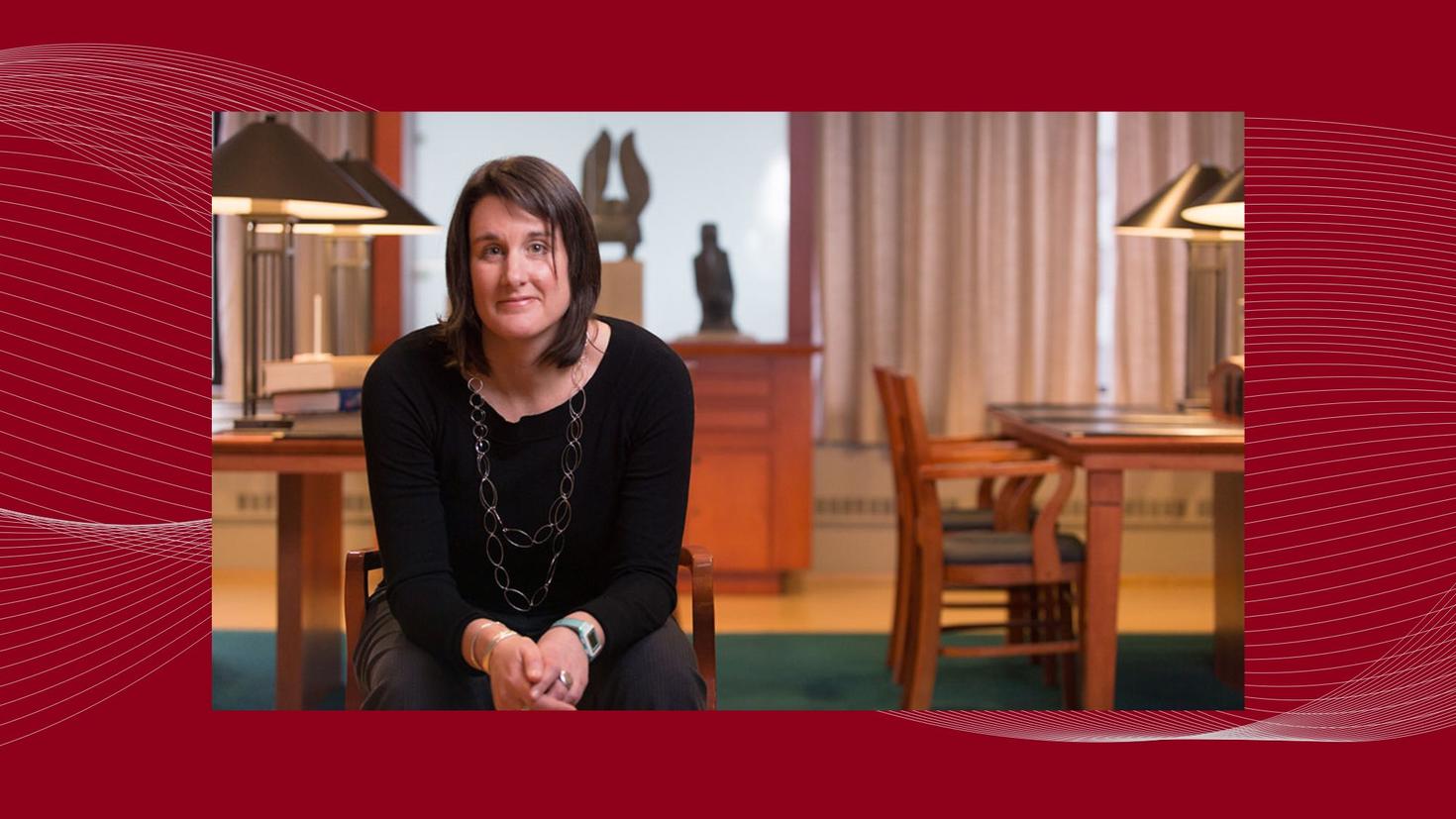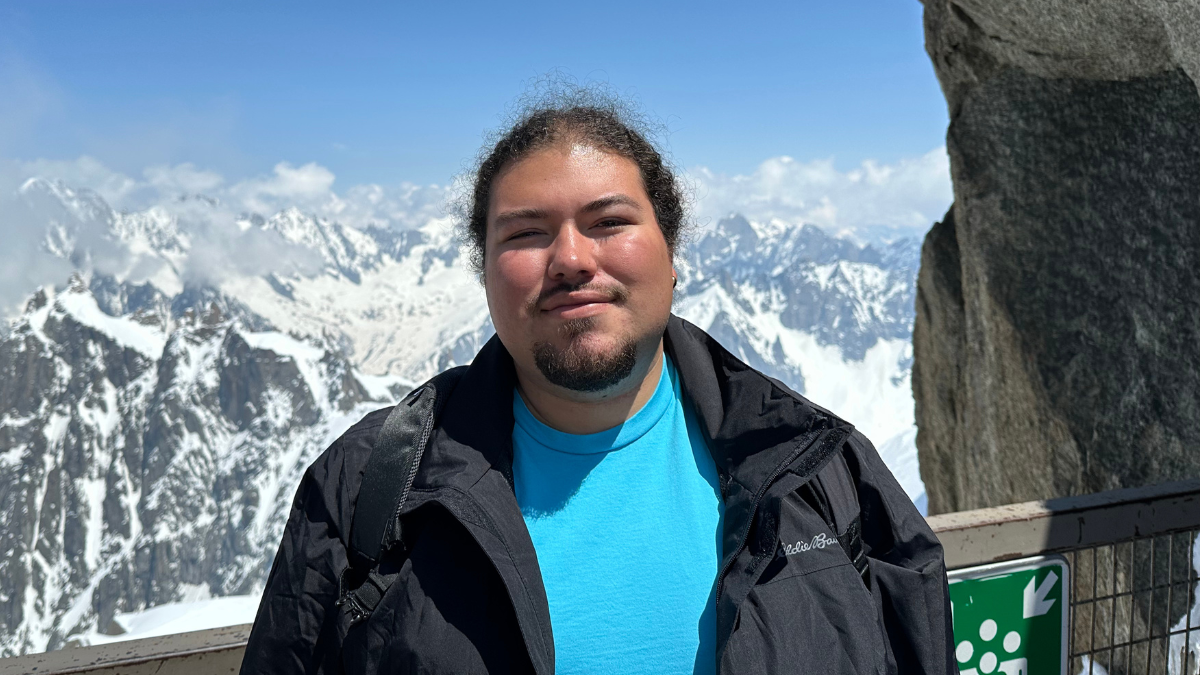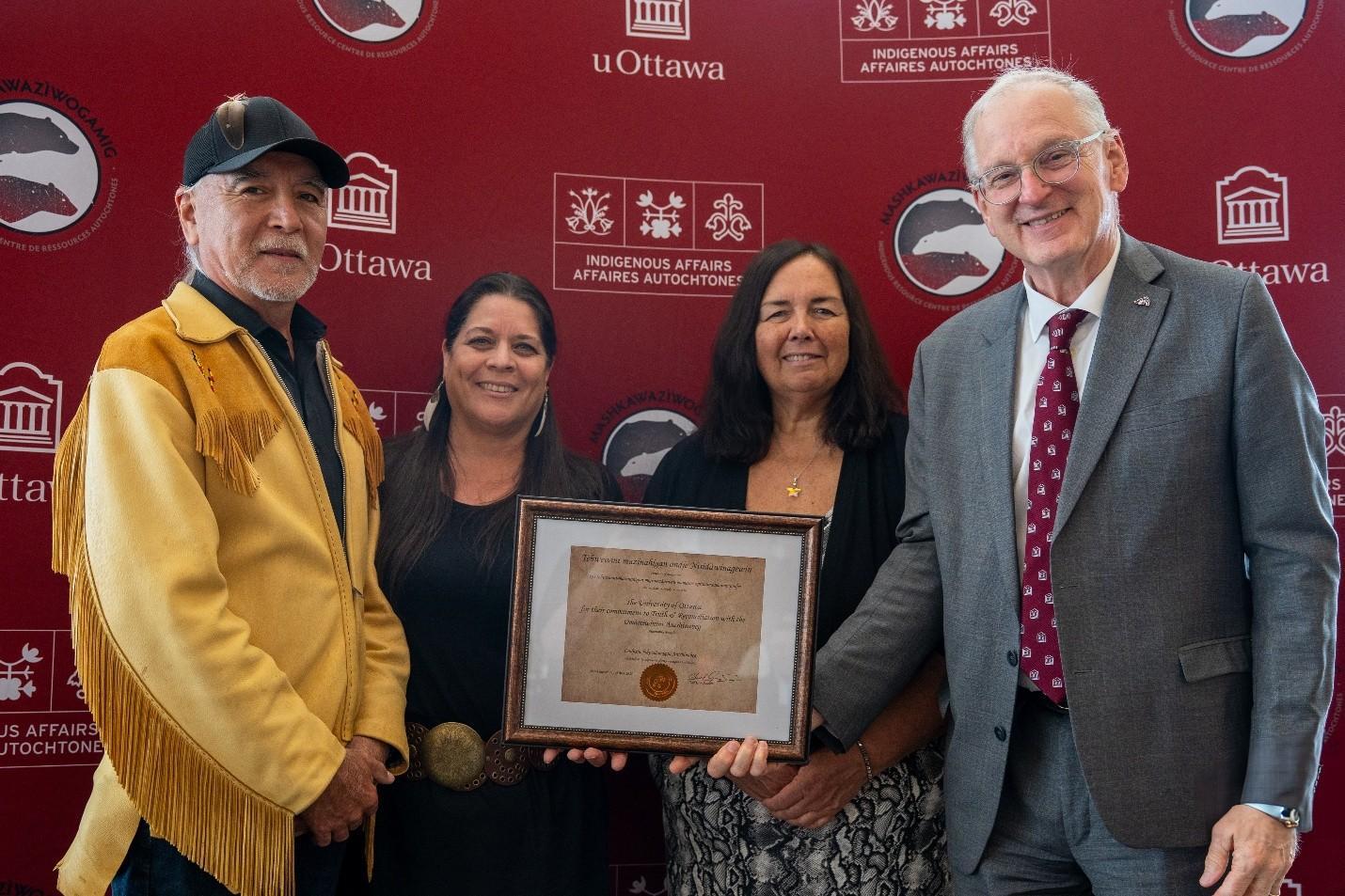The Anishinabeg principles of the Seven Grandfather Teachings are a part of their worldview. By creating a community at uOttawa that is grounded in the Seven Grandfather Teachings, the Faculty acknowledges and recognizes the value the teachings have in building and nurturing relationships. The Faculty strives to support the next generation of Indigenous legal professionals. Read more about how Indigenous community is created and celebrated at the Faculty.

Indigenous Applicants

Indigenous Programs Specialist
Post-Admission Resources and Opportunities for Indigenous Learners
Community Grounded in the Seven Grandfather Teachings
Love – Saagi’iwewin
Indigenous Affairs Team, Faculty of Law, Common Law:
- Indigenous Programs Specialist: The Faculty of Law has a dedicated Specialist who provides guidance and support for all Indigenous Learners, including academic resources, professional development and cultural support. The Specialist also provides cultural resources, such as community beading circle and the spirit garden. Tasha Simon is known as the Law School Auntie. Read more about how the law school auntie supports Indigenous learners.

Humility – Dabasenimowin
Indigenous Law Students Governance (ILSG): ILSG provides Indigenous Law Learners with opportunities for mentorship, social connections and community, and advocacy. ILSG facilitates learning opportunities about Indigenous peoples and Indigenous law for the broader community at the Faculty of Law, including learners, faculty, and staff.

Respect – Manaatandomowin
- Community Beading Circle provides a safe space to practice the revitalization of Indigenous legal orders and the tradition of beading through peer-to-peer knowledge transfer. Beading Circle provides a space for the development and recognition of Indigenous legal pedagogies. Beading also promotes the mental wellbeing of the beader as the act of creating and beading is grounding and therapeutic. The opportunity to gather in community allows for strong relationships grounded in trust to be built amongst students, faculty and staff.
- Soup and Bannock: The Indigenous Programs Specialist hosts weekly Soup & Bannock for the Indigenous Learners and guests as an opportunity to gather in community over a hot meal while creating an environment for networking, mentorship and relationship building amongst faculty, staff and learners.
- Convocation stole program: The practice of building relationship is accomplished through learning together and designing and beading of stoles for future Indigenous graduates. This practice allows those who create and design the stole to acknowledge and honour all the hard work of the learner, their family and anyone who helped them on this journey through law school. The stoles are gifted at the convocation ceremony. Learn more about Indigenous symbolism at convocation, University of Ottawa.
- Spirit Garden: A Spirit Garden has been established in Fauteux. It contains the four sacred medicines: Tobacco, Sage, Cedar and Sweetgrass. Indigenous Learners are encouraged to tend to the garden and take part in harvesting the sacred medicines. Read more about the Spirit Garden at Fauteux.

Truth – Debwewin
Algonquin Anishinabe Knowledge Holder: The Faculty of Law is committed to providing Indigenous learners with culturally appropriate support. Gilbert Whiteduck is available to provide guidance to learners, faculty and staff.

Courage – Soogenimowin
- Reconciliation & Decolonization Committee (RDC): (formerly the Indigenous Legal Traditions Committee.) The RDC provides support to the Faculty of Law and takes action on the faculty's response to TRC Calls to Action #27 and #28.
- Mashkawazìwogamig Indigenous Resource Centre (IRC): The IRC offers a study space, access to computers and printers and a great spot to meet other Indigenous students at the University of Ottawa. Elder support, access to knowledge keepers, and academic counselling are also available.
- National Indigenous Law Students Association (NILSA)
- Indigenous Bar Association (IBA)

Wisdom – Gikendamowin
- Kawaskimhon National Aboriginal Law Moot: Kawaskimhon a word of Cree origin which roughly translates to “speaking with knowledge”. The Kawaskimhon Moot is a consensus-based, non-adversarial moot that incorporates Indigenous legal traditions alongside federal, provincial and international law. Participants take part in a roundtable negotiations on a particular topic in Indigenous law, representing their assigned party.
- Option in Aboriginal Law and Indigenous Legal Traditions: The Faculty of Law offers the Option in Aboriginal Law and Indigenous Legal Traditions to JD learners looking to gain an in-depth and practical experience in these areas.
- Courses engaging in Indigenous and Aboriginal Law: The Faculty of Law curriculum offers various courses which engage in Indigenous law and Aboriginal law, such as Indigenous Peoples and the Law/Les autochtones et le droit. See the Course Search Engine for more information, as the course selection varies per term.
- The College of Law Spring and Summer Law Courses for Indigenous Students, Indigenous Law Centre, uSask. Incoming first year Indigenous learners who complete the Property Law and/or Indigenous law course at the University of Saskatchewan can receive a credit(s).
All 1L learners complete mandatory modules that explore the Seven Grandfather teachings through the lens of TRC Calls to Action 27 and 28.

Honesty – Misàbe
- Senior Specialist, Student Success and Wellness Programs: The Faculty of Law has a dedicated counsellor who will work with you to help clarify various personal issues and learn strategies that can help you cope with the challenges you are facing in your educational, personal and professional lives in order to promote a successful experience in law school. Specialized referrals can be made by the Equity & Student Success Counsellor to an appropriate service
- Wellness Resources: The Faculty of Law has in-house counselling services to support law learners’ mental health.

Admissions and application process
Proof of Indigenous identity must be provided in accordance with the University’s policy. It can take different forms. Consult the University of Ottawa’s policy on admissions streams and scholarships intended for First Nations, Inuit, and Métis applicants (PDF, 210.46 KB).
Indigenous Applicants are encouraged to use their Personal Statement to describe their connection to their Indigenous community, including the extent to which they are involved in their Indigenous community, if applicable.
Applicants who experience financial barriers may request a waiver of the OLSAS fee for the University of Ottawa application process. To request a fee waiver, Applicants are required to email the Common Law Section’s Recruitment and Admission Office to obtain a waiver form.
Applicants can apply to have the LSAT sitting fee waived by contacting the Law School Admissions Council (LSAC) directly. The LSAC fee waiver program was developed to increase equity and access to legal education. uOttawa offers a free LSAT Prep Course for prospective applicants who have experienced systemic barriers to education.
NB: The University of Ottawa has announced that all Algonquin students who are registered members of any of the 10 federally-recognized Algonquin First Nations in Ontario and Quebec can now enrol for any undergraduate, master's or doctoral program at uOttawa free of tuition fees.
Financial Support
The Faculty of Law offers financial support specifically for Indigenous learners, including need-based bursaries, merit-based scholarships, and awards for extracurricular achievements. When applying for bursaries and scholarships reserved for First Nations, Inuit and Metis learners, it is mandatory to provide proof of Indigenous identity in accordance with the University of Ottawa Eligibility for Focused Admissions, Scholarships and Bursaries for First Nations, Inuit and Metis People academic regulation.
Related Articles

Len Marchand is by his own admission a “cup half full kind of guy.”

Strengthening ties, deepening connection: A visit to Kitigan Zibi

Reconciliation is integral to the learning journey

Professor Angela Cameron: Championing Inclusive and Decolonized Legal Education

A Win for One is a Win for All: Wolfgang Wuttke-Stanton on Humility, Community,…
